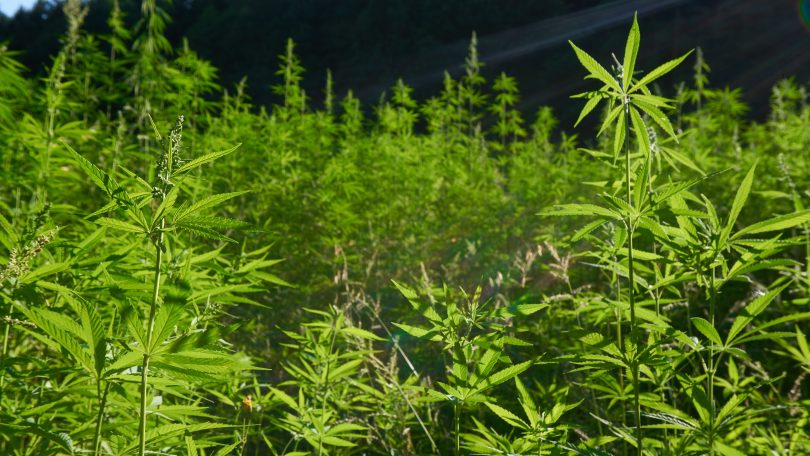Farmers are being urged to switch to hemp in moves which could boost incomes and help reduce potentially harmful greenhouse gas emissions.
In a new report the U.K.’s National Farming Union (NFU) encourages British farmers to plant hemp – and other bio-based alternatives – for building materials, as its aims to make the agricultural sector carbon neutral within 20 years.
Entitled; ‘Achieving Net Zero: Farming’s 2040 Goal’ it says the hemp hurd – or shiv – is an ideal material for the construction sector. The report highlights how shiv not only absorbs carbon dioxide when growing, it continues the absorption process when used in hempcrete.
Major Greenhouse Gas Savings
The report says that ‘Bio-based materials in construction and industry could deliver greenhouse gas savings of 0.5 MtCO2e/year’. The report also recommends using farming bi-products such as methane to produce electricity, and planting more trees and hedgerows to increase carbon storage, reports the Hemp Today website.
This NFU report picks up on a common theme amongst many cannabis advocates highlighting the significant environmental benefits of the plant. Guy Coxall, Chairman of HempTank and Compliance Director for the Cannabis Trades Association, is a well-informed apostle.
Writing in September’s Hemp & CBD Expo magazine he highlights how hemp can provide low carbon alternatives in transport, heating, construction (hempcrete) and as an alternative to plastics.
The Valuable Shiv
He said: “To me the shiv is the most valuable part of the plant. By value I am not talking about the monetary sense – the flower reaches the highest price – I am relating it to a valuable solution to many of our problems.”
He goes on to say that a typical house can be built using around 50 cubic meters of hempcrete – which is made from the shiv, lime and water – and will lock up 5.5 tonnes of carbon, compared to a standard house which will emit 48 tonnes of carbon over its lifetime.
In the transport sector he says hemp seed oil can be used as an effective ‘non-petrochemical alternative to diesel and the shiv can produce ethanol to power petrol vehicles’. He earlier told CBD Testers that the hemp industry could ‘boost the economy and create thousands of U.K. jobs’.
He said: “Farmers could benefit enormously – for example, some estimates say a hectare of hemp for CBD production is worth over £100,000 and even the stalk alone is double the value of a hectare of good quality corn.”
British farms are responsible for around 10% of UK greenhouse gas emissions, but only 10% of that total is carbon dioxide, while 40% is nitrous oxide from things such as fertilizers, and 50% is methane from cows and sheep, reports Hemp Today.









